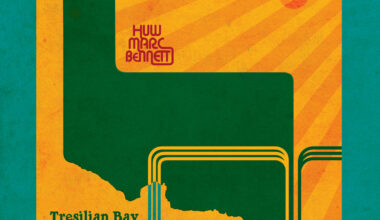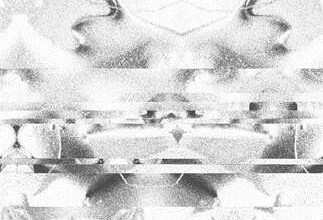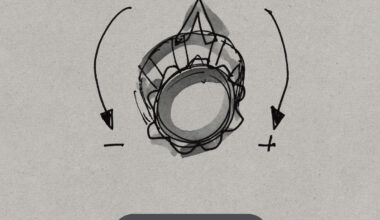
If the names of these two records said together are a mouthful, then spare a thought for Gary Numan, who’d wanted ‘Replicas’ to come out under his own name rather than as the follow-up to Tubeway Army’s eponymous debut. Having discovered a Minimoog in the small Gooseberry Studio in London’s Chinatown where the demos were recorded, he’d experienced a Damascene conversion and immediately began to embrace electronica.
His label, Beggars Banquet, reluctantly allowed Numan to boldly go in pursuit of the future, but they were evidently having none of the name change. A surprise Number One hit single later with ‘Are Friends Electric?’ and the band leader got his wish, even if it looked as if he’d sacked the group to reap the reward himself when success beckoned.
Despite how it might have appeared, bassist Paul Gardiner continued in the same role while Numan’s uncle, Jess Lidyard, stepped down amicably to spend less time with the family. The line-up remained largely the same, though Numan began writing more on the piano, shifting the musical focus of the group. Furthermore, the increased pivot to synths between ‘Replicas’ and ‘The Pleasure Principle’ made for a starker experience on the records and, given the temperamental nature of the machines back in 1979, the early recordings of the latter are a more varied and fascinating listen.
Taken from the high resolution digital transfers made by sound engineer John Dent in 2007, Numan completists might feel a little hard done by given that most of these recordings were released 10 years ago when the last significant anniversary came around. Two lost versions, ‘Tracks (Demo Version)’ and ‘Cars (Demo Version 1)’ which were thought to be irreparably damaged, have been sourced from elsewhere, to ensure there’s something new/old for fans to enjoy.
There are also several Peel Sessions included, which make for interesting listening. One of the sessions, aired the day before ‘Are Friends Electric?’ hit Number One in June 1979, was credited as Gary Numan for the first time. These were released as part of a complete CD set of Peel Sessions in 2007, and many of the tracks were previously available on vinyl under the title ‘Double Peel Session’ in 1989.
Perhaps the biggest thrill for Numanoids is being able to enjoy these demos as they were presented to the record company, in sequential order, for the first time. The ordering tends to suggest which songs he thought had potential and which he regarded as work in progress, although second guessing an artist who followed up the success of ‘Cars’ with the sci-fi ballad ‘Complex’ instead of the sure-fire hit, ‘Metal’, presents more questions than answers, as is often the case with Numan.
The songs on ‘Replicas’, recorded in 1978, are all but replicas themselves, occasionally looser and played with less certainty, but mostly the product of a well-drilled band. The demo versions do, if anything, highlight the simplicity of the rhythm section which, unvarnished, allows us to gawp at the band’s very human output. It’s solid with few frills and not the work of extraterrestrials or machines, though those dazzling synth lines and Numan’s awkward magnetism do much to distract us from the traditional framework in place.
Sometimes the evolution is easy to spot, like on the two early versions of ‘Are Friends Electric?’. Numan goes from croaking the first verses from the bottom of his boots, whereas by the second version he’s figured out that singing an octave up gives it more urgency; a simple change of register sees the song transformed. The same thing happens again with ‘ME’ and you wonder if it’s a case of not learning a lesson, or that he’s feeling more sluggish during the recordings of the demos, or could he be simply saving himself for the main performance? Conversely a song like ‘Down In The Park’ conveys the same bonkers Ballardian vision, where Numan is still giving the rape machines a wide berth down by the swings. Play them end to end and only the most attentive will spot the differences.
The antecedents of ‘The Pleasure Principle’ appear more embryonic than those on ‘Replicas’. The stroppy ‘Films’, where he’s complaining about the actors and the scenery and whatever else, has a squelchier, flange-ier mise-en-scène on the earlier version; ‘Cars (Demo Version 2)’, which opens the second album, has little of the automaton swagger of the final single (that also went to Number One in the UK), and the eagle-eared among you will notice one of the Moog lines is marginally flat. Given their expense at the time, Numan could only hire the synthesisers for short periods, making the mastering of the instrument or the maintenance of consistency difficult to achieve in the time he had.
There’s a further curio in the clunky cover of Erik Satie’s ‘Trois Gymnopédies No 1’ by another musical outlier who released two very famous compositions (with people scratching their heads when asked to name anything else by him). If Numan felt an affinity with the Frenchman back in the late 70s, then he must really feel it now.





